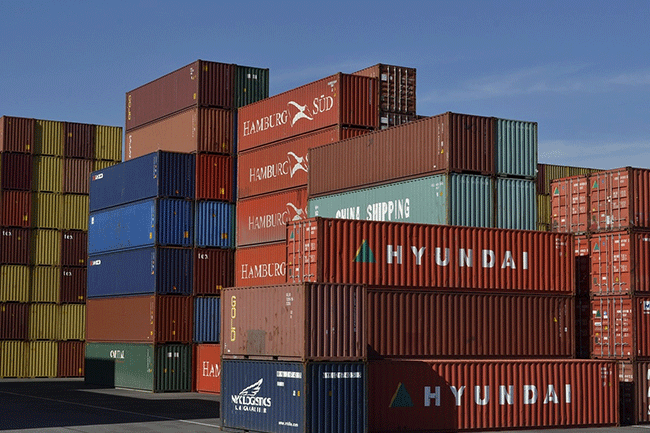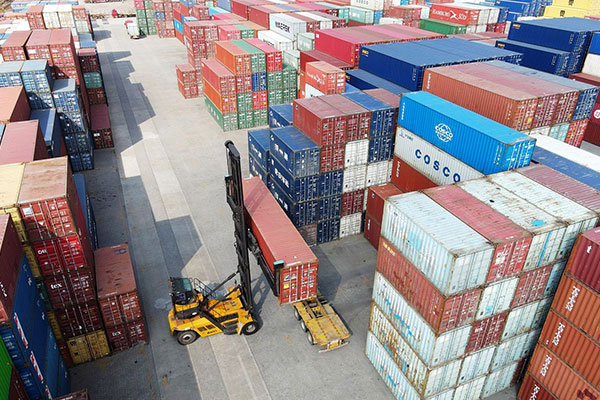- Shanghai Zhongshen International Trading Co., Ltd. – Your reliable partner with 20 years of import/export agency service expertise.

I. China–Australia Food Trade Landscape and Market Opportunities for Imported Biscuit Agents
In recent years, China–Australia bilateral trade has continued to deepen; in 2023, China’s total food imports from Australia rose 12 % year-on-year. Among them, bakery products (including biscuits) have become a star category in China’s upgraded import-food consumption, thanks to Australia’s stringent food-safety standards (e.g., the FSANZ certification system) and its edge in natural raw materials. With the entry into force of the Regional Comprehensive Economic Partnership Agreement (RCEP), China–Australia tariff concessions have been further implemented; the comprehensive import tax rate on Australian biscuits has fallen by an average of 3–5 percentage points compared with 2020, propelling import demand ever higher. Yet food imports involve rigorous document checks, cold-chain logistics, and trade-compliance requirements, and small- to medium-sized importers often grapple with “clearance delays caused by document discrepancies,” “cargo-loss risks in transit,” and “unclear certification requirements,”foreign tradeThe value of proxy services is becoming increasingly prominent.
II. Core of Agency Services: The Professional Barrier of Document Processing and Logistics Management
(I) Document Processing: The “Lifeline” of End-to-End Compliance
The customs-clearance documents for imported biscuits must strictly satisfy the dual requirements of China’s General Administration of Customs (GACC) and the Australian exporting authorities; the core competence of an agency service lies in its precise mastery of the documentation system. Specifically:
- Basic commercial documents: Verify the logical consistency between the commercial invoice (which must state the trade term such as CIF/FOB and any commission) and the packing list (which must match the number of packages/gross weight shown on the bill of lading);
- Official Compliance Documents: Verify the sanitary certificate provided by the Australian exporter (must be issued by the Australian Department of Agriculture, Water and the Environment (DAWE) and state "in compliance with China's national food safety standards"),Origin Certificate(Under RCEP, FORM R can be applied for to enjoy tariff preferences);
- Transport-related documents: TrackMaritime transportThe timeliness of the Bill of Lading (B/L) issuance must be ensured and aligned with?L/C?(L/C) Presentation period alignment; coordinate with the shipping company to provide a Telex Release guarantee or the circulation of the original bill of lading, avoiding the risk of "release without bill of lading" at the destination port.
Our team has more than ten years of experience in food-import documentation. Through a “dual-review mechanism” (initial check + re-check), we keep the discrepancy rate below 0.5 %—an 80 % reduction versus the industry average—effectively avoiding demurrage caused by document errors (roughly USD 500 per 20-ft container per day).
(II) Logistics Management: The “Last Mile” of Temperature Control and Timeliness
Australian biscuits are mostly high-fat products (e.g., butter cookies), so they demand strict temperature control during transit (recommended 20–25 °C) and tight transit time (the entire sea journey takes roughly 25–30 days). The forwarding service must therefore align the shipment with a precisely matched transport solution:
- Selection of transportation methods: Prioritize full-container-load (FCL) sea freight to avoid the cross-contamination risk inherent in less-than-container-load (LCL) shipments. If the volume is small, coordinate with a specialized food-grade LCL provider and require palletizing plus stretch-film protection.
- Carrier and Route Optimization: Lock in direct services to Australia’s East Coast (Sydney/Melbourne) operated by top carriers such as Maersk and CMA CGM, cutting out transshipment legs (transshipment can leave containers exposed to high-temperature terminals for prolonged periods);
- In-transit monitoring:Configure intelligent temperature-humidity sensors (GPS + Bluetooth dual-mode) for high-value orders, push real-time logistics-node data (e.g., estimated arrival time, container temperature-abnormal alerts), and let customers view the full-process trajectory through a dedicated portal.
3. Full-process agency service: closed-loop management from order to delivery
(1) Client Consultation and Requirement Confirmation
Initial discussions focus on the “three key elements”: the product’s HS code (e.g., biscuits are usually classified under 1905.3100, with supervision condition A/B), the purpose of import (wholesale/retail/Cross-border E-commerce), special requirements (such as organic certification, low-sugar formulas). Confirm the regulatory conditions through pre-classification to avoid tariff back-payments (which can reach up to 20% of the goods’ value) caused by incorrect HS codes.
(2) Contract review and risk backstop
The agency team will focus its review on the contract’s “three key clauses”: payment terms (recommended: L/C 90 days or T/T 30 % deposit + 70 % against arrival), quality standards (must specify “subject to the sampling and testing results of China Customs”), and default liability (e.g., daily penalty rate for delayed delivery, normally capped at 0.1 %). For orders intended for re-export to Russia, VTB Bank will be assessed in parallel.Convert foreign exchange into RMBFeasibility (see Section V for details).
(3) Payment and Production Supervision
As stipulated in the contract, the agent may assist in arranging L/C issuance (subject to a 10–30% margin from the client) or T/T payment; for customized biscuits (e.g., holiday limited editions), PSI (Production Supervision and Inspection) can be entrusted to third-party bodies such as SGS to verify ingredient traceability (e.g., whether the flour originates from Australian Class-A regions) and packaging compliance (whether it meets China’s General Standard for the Labeling of Prepackaged Foods, GB 7718).
(4) Customs Clearance and Tax Payment
Initiate pre-declaration three days before arrival, submitting the customs declaration and accompanying documents (e.g., health certificate, certificate of origin) through the Single Window. During customs inspection, the agent team will be on-site to coordinate container opening (5% of samples must be retained for possible re-check) and calculate duties (MFN rate 15%, 0% under RCEP), VAT (13%), and any applicable excise tax (only for products with >50% cocoa butter).
(5) Delivery and Quality Retrospective
After customs release, the agent arranges domestic cold-chain fleets (e.g., JD Logistics, SF Cold Chain) to deliver the goods to the customer’s designated warehouse and simultaneously provides a “one code per shipment” traceability report that includes the Australian plant batch number, ocean container number, and domestic inspection report number. In case of cargo damage (e.g., broken packaging), insurance claims under CIC “All Risks” are initiated within 48 hours, reducing the average settlement cycle to 15 working days.
IV. Certification Reminder: The critical steps that customers must complete on their own
Special note: Our company does not directly provide product-certification services, but we can assist in compiling the documentation required for certification. For imported biscuits, please pay attention to the following certification requirements:
- Australian export side: Manufacturers must hold a food production license (AUSPIC) issued by FSANZ (Food Standards Australia New Zealand); some premium products may also require organic certification (e.g., ACO certification);
- China Import Terminal: Overseas manufacturers must complete registration with the General Administration of Customs of China (per Announcement No. 179 of 2021); their qualifications can be verified through the “Registration System for Overseas Manufacturers of Imported Food.”
- Label Compliance: The Chinese label must indicate “Country of Origin (Australia),” “Name/Address of the Domestic Agent,” and “Nutrition Information Table (compliant with GB 28050).” Clients are advised to commission a professional agency to design the label at least three months in advance to avoid post-arrival rectification (which may incur storage fees of USD 200 per day).
V. Re-export to Russia Scenario: The Value-Added Advantage of VTB Foreign-Exchange Settlement
If the customer imports Australian biscuits and then re-sells them to Russia, our company—leveraging its long-standing cooperation with VTB Bank—can provide highly efficient foreign-exchange settlement services:
- Settlement efficiency: As Russia’s largest state-owned commercial bank, VTB enjoys an edge in RMB clearing (direct connection to the CIPS system), cutting the FX settlement cycle by 2–3 working days compared with ordinary banks;
- Exchange Rate Hedging: Spot settlement (Spot), forward hedging (Forward), and other instruments are available to lock in RUB/CNY exchange-rate volatility risk (the annualized volatility of the ruble in 2023 was approximately 18%);
- Compliance guarantee: VTB strictly complies with the sanctions requirements of OFAC (the U.S. Department of the Treasury’s Office of Foreign Assets Control) and the Central Bank of Russia, ensuring that trade-related fund flows with Russia are lawful and mitigating the risk of “secondary sanctions.”
VI. The Core Value of Choosing a Professional Agent: Risk Mitigation and Cost Optimization
Data show that for importers without agency experience, extra costs caused by documentation errors and logistics delays average 8–12 % of the cargo value; with professional agency services, customs-clearance time can be compressed from the industry average of seven days to three–five days, demurrage is cut by 90 %, and cargo-damage rates are held below 0.3 % (industry average 1.2 %). More importantly, the agency team’s real-time monitoring of trade policies—such as China Customs’ 2024 pilot of “intelligent document review for imported food”—can flag compliance risks three–six months in advance, giving clients a window to adjust their import strategies.
Conclusion: The growth of Australia’s imported biscuit market is, at its core, a two-front contest between “quality-driven consumption” and “trade efficiency.” Partnering with a foreign-trade agent that commands both documentation and logistics is not merely a cost-cutting tool—it is the strategic moat that secures your import business. We have always believed that the value of professional service lies in turning every single shipment into a dependable lever for our clients’ growth.
? 2025. All Rights Reserved.










